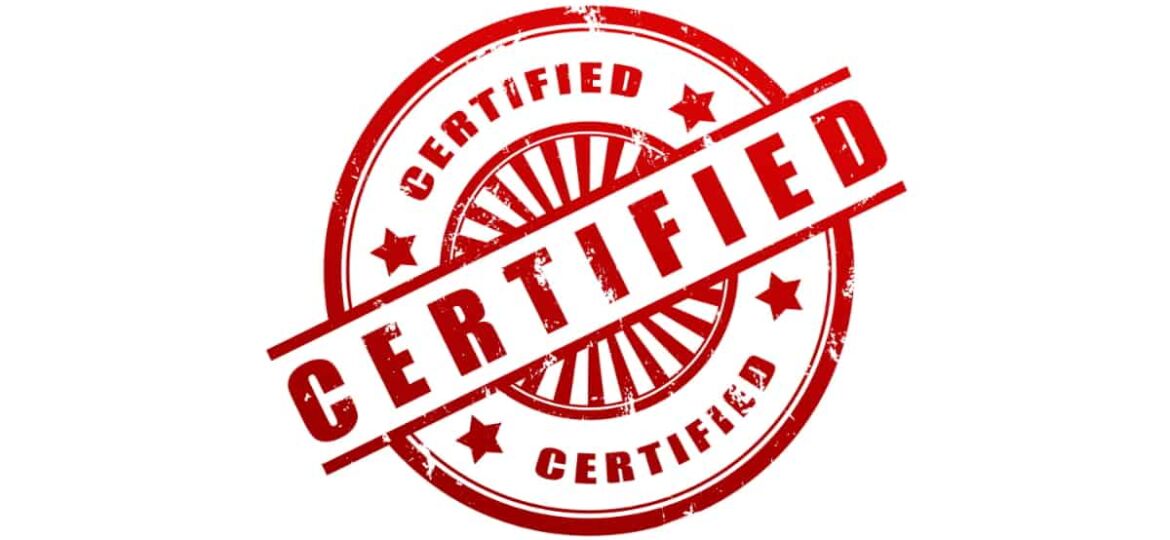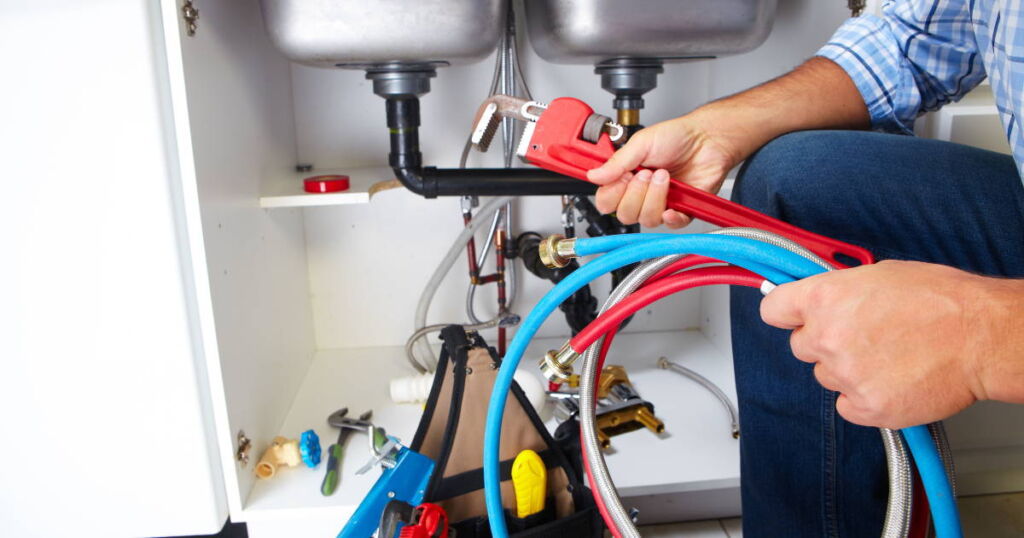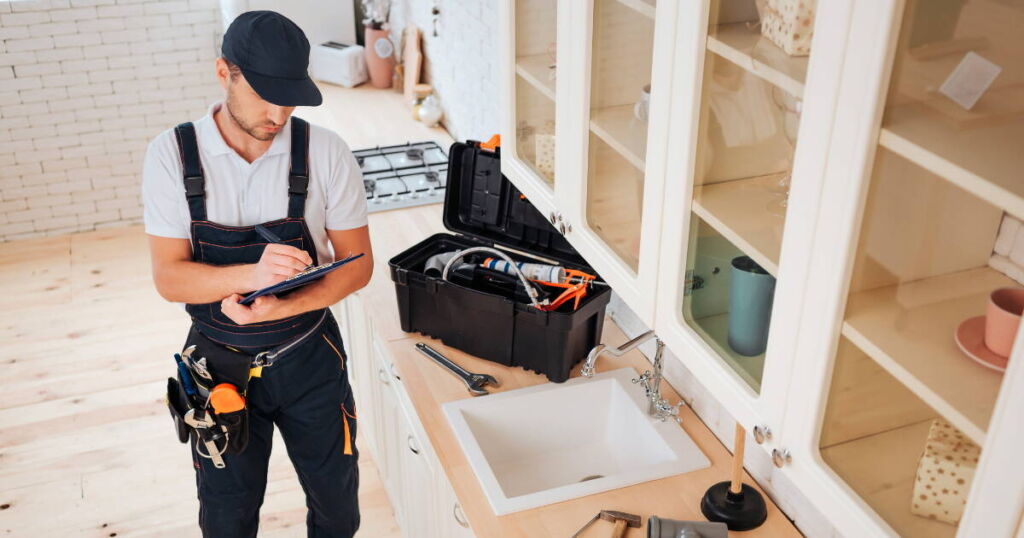
Among plumbers, there are several classifications within the profession. The extent how which someone works on plumbing systems depends on their certification.
The plumbing industry is regulated, meaning you need to be a licensed plumber to work on plumbing systems independently. Moreover, you need further accreditation to be a plumbing contractor.
Here’s what you need to know how to become a certified plumber.
What is a Job Description of a Certified Plumber?
If you have a clogged drain or a backed-up sewer system, you may need a professional to fix your plumbing issues. Master plumbers who will drop by are expected to have the following abilities:
- A plumber can determine, inspect, and troubleshoot plumbing problems. A plumber should also resolve potential plumbing issues.
- A plumber can read blueprints and abide by the local government’s state and building codes.
- A plumber should know how to attach and weld pipes and know basic carpentry.
- A plumber needs to know and understand every type of plumbing system, which popes are required, and connect these for various conditions.
How Can You Become a Plumber?

A career in plumbing has several stages. The person should know the basics of plumbing trade. However, each plumber should also complete the following requirements to work in specific capacities:
- Must be at least 18 years old
- Must hold a high school diploma
- Has clean drug test results
- Must pass a basic math test
- Has training in a plumbing trade school, or a community college program
- Has a working knowledge of computer to work independently as a journeyman plumber, a plumber should complete the following requirements:
- Complete an apprenticeship program under a bona fide sponsor or a company.
- Has a plumbing license as required by their state.
What are The Difference Among Apprentice Plumbers, Journeyman Plumbers, and Master Plumbers?
Aspiring plumbers should hold an appropriate plumber license to practice even basic plumbing work independently. For instance, a plumber undergoing an apprenticeship program can’t work independently as a plumber.
Moreover, a plumber can only operate or own a plumbing company or be an independent contractor with a plumbing contractor license. Among the three primary types of plumbers, here are their differences:
Apprentice Plumber:
An apprentice plumber is trained under a journeyman plumber or a master plumber to learn their trade through their job and through related coursework. Many apprenticeship programs take an average of 2,000 on-the-job training hours and around 250 classroom hours.
An apprenticeship program typically takes two to six years to complete. Typically, an apprenticeship program is offered by plumbers’ unions. A plumber who wishes to be an apprentice may study under a licensed plumber and undergo professional development.
Journeyman Plumber
Once a plumber completes the plumber’s apprentice program and, depending on the state, has passed a licensing exam to become a journeyman plumber, they can practice being a plumber on their own. The licensing exam tests the knowledge gained through their apprenticeship training program.
Depending on the state, journeyman plumbers should undergo continuing education and licensing exam renewals. Some states require renewals yearly, while others require renewals every three to five years.
Master Plumber
Being a master plumber is the goal of many plumbers. To reach this level, a plumber should consistently work as a journeyman plumber for two years. That means holding on to their journeyman plumber license for two years before taking an exam to gain a master plumber license.
The licensing exam has a practical exam portion and a theoretical or written exam portion. A licensed master plumber can hold supervisory positions, are qualified to plan and design commercial or residential plumbing systems, and practice previous skills.
How Long Does it Take to Gain Different Plumbing Licenses?
How long does it take to become a plumber? That depends on which stage of a career as a plumber. It involves many stages like undergoing a plumbing class and need to pass the plumbing certification program.
To maximize your potential of earning as much in your career as a plumber, expect to go through several steps, each takes time, completing coursework, passing examinations, and satisfying specific criteria required by the state:
Apprenticeship Program
To complete an apprenticeship program, each plumber trainee should complete 2,000 on-the-job training hours and around 250 hours of coursework. The program lasts between two to six years to complete.
Journeyman Plumber License
A plumber should pass a journeyman plumber licensing exam to become one. However, journeyman plumber needs to maintain their license through annual renewals, though some states require renewal every three to five years.
Master Plumber
To gain a master plumber license, a plumber should work consistently as a journeyman plumber for two years. They should pass a master plumber license exam with practical and written portions.
Plumbing License and a License for a Plumbing Business: Is there a Difference?
If a plumber wants to operate a plumbing business, a plumber may need to acquire the appropriate contractor’s license. Though requirements by state vary, a contractor’s license guarantees that your company abides by state laws and regulations, is insured and is recognized in the industry as a bonafide plumbing business.
In Arizona, to work as a plumber independently, even if they will only do plumbing in a house, a plumber should hold a state contractor’s license. The State Registrar of Contractors issues three types of contractor’s licenses: commercial plumbing license, residential plumbing license, and dual plumbing license.
To gain either a Specialty Commercial Contracting License or a Special Residential Contracting License, a plumber requires presenting proof of working four years as a plumber and passing a business and trade exam.
Being a Certified Plumber Is a Promising Trade

Whether you have a journeyman license or a master license, working as a plumber nowadays is a promising career. However, to work independently as a plumber, plumbers must pass certain state requirements to be independent contractors in specific states, especially Arizona.
To maximize the potential of a career in plumbing, the goal is to achieve acquiring a master plumber license and perform plumbing work that covers a wide variety of commercial and residential plumbing needs.
Like other plumbing contractors, such as Phoenix Plumbing and Drain, you will be assured that qualified professionals will be delivering plumbing work who holds appropriate licenses, insurance, and credentials.
To know more about our services or for immediate help with your plumbing in Phoenix, AZ, and surrounding cities, call us at 480-696-5048 or email us at Support@phoenixplumbanddrain.com.
